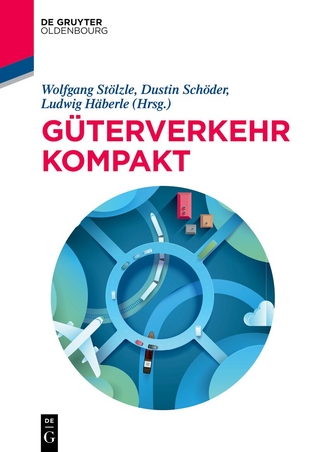
Supply Chain Excellence: A Handbook for Dramatic Improvement Using the SCOR Model
Amacom (Verlag)
978-0-8144-1771-3 (ISBN)
- Keine Verlagsinformationen verfügbar
- Artikel merken
"In this latest edition of Supply Chain Excellene, the authors provide tools for measuging financial gains linked to value chain optimisation" Business Digest, March 2012
To keep your sales, manufacturing, distribution, and inventory moving in perfect synchronization, you need a flawless, repeatable supply chain improvement approach that maximizes process efficiency, eliminates dysfunction, and aligns disparate organizations—globally.
Supply Chain Excellence, ahead of the curve in its original edition, again breaks new ground with a highly compressed timeline for using the SCOR (Supply Chain Operations Reference) framework to plan and execute supply chain improvement. In addition to the value chain processes of DCOR and CCOR, the book is now adapted for use in an SAP environment, in global enterprises, and by small businesses.
Featuring examples and experience from roughly 100 projects, the completely updated third edition refines the use of the scorecard for better process analysis; extends the approach to encompass implementation and strategy; and quantifies the financial value of supply chain improvement to demonstrate its importance in achieving lasting competitive advantage.
PETER BOLSTORFF is President and CEO of SCE Limited, which supports supply chain performance through education, coaching, and process expertise. ROBERT ROSENBAUM, an award-winning journalist, is founder and President of The MarketFarm, which specializes in leveraging technical content. He was the founding editor of the former Supply Chain Technology News.
CONTENTS
Preface
Acknowledgments
Introduction
Chapter 1
The Supply Chain Operations Reference Model
> The Cross-Industry Standard for Supply Chain
The Supply Chain Council
The SCOR Framework
Value Chain Processes
Using SCOR to Drive Supply Chain Improvement
The Value of a SCOR Initiative
Chapter 2
Phase 0: Build Organizational Support for Supply Chain Improvement
> Finding the Tipping Point for Change
The Evangelist
The Active Executive Sponsor
Establishing Core Team Buy-In
Picking the Project Design Team
Chapter 3
Phase 1: Define Project Scope
> Planning and Organizing a Supply Chain Excellence Initiative
The Business Context Summary
The Project Charter
Chapter 4
Phase 2: Analyze Performance
> April 18 and 25: Project Kickoff and SCOR Metrics
The Project Kickoff
Picking a Balanced Set of Supply Chain Metrics
Data Collection and Benchmarks
Chapter 5
Phase 2: Data, Benchmarks, and Competitive Requirements
> May 2 and 9: Putting Performance in Perspective
Initial Data Review
The SCORmark Survey
Competitive Requirements Analysis
Metric Defect Analysis
Sponsor Update Considerations
Chapter 6
Phase 2: Scorecards and Gap Analysis
> May 16 and 23: Estimating the Size of the Opportunity
The Scorecard Review
Chapter 7
Phase 2: Defect Analysis
> May 30 and June 6: Answering the Questions of Who, What, Where, When, and How Much and Then Telling the Steering Team
Defect Analysis
Planning for the First Team On-Site
The Steering Team Review
Chapter 8
Phase 3: Develop the Project Portfolio
> June 16 and July 11–15: Building Shared Vision and the Project List
Planning the Brainstorm Event
Conducting the Brainstorm Session
Chapter 9
Phase 3: Refine the Project Portfolio
> July 11–15: Validating the Project Benefits and SCOR Processes
Consolidating Problems to Projects Using SCOR
Validating the Problem Weight
Chapter 10
Phase 3: Opportunity Analysis
> July 11–15: Due Diligence for the Project List
Summarizing the Opportunity
Conducting Steering Team Review Number Three
Chapter 11
Phase 4: Lay Groundwork to Implement Projects
> Mapping Out the Details and Portfolio Implementation Plans
Implementation Project Charters
Chapter 12
Phase 4: From Portfolio Development to Implementation
> Organizing Supply Chain Improvement as Part of Daily Life: Faster, Better, and Cheaper
Initiating Implementation
Chapter 13
Phase 4: Initiate Implementation
> Getting Organized, Getting People, Getting Data
Identify and Approve Project Resource Plan
Establish the Project Schedule and Kickoff Date
Review Project Background and Develop the Performance Baseline
Chapter 14
Phases 2–4: The Staple Yourself Interview and SCOR Level 3 Process Diagram
> June 13–17: How the Work Really Gets Done; a Tool for All Phases
Preparing for the Staple Yourself Interview
Assembling the AS IS Process and RACI Diagrams
Chapter 15
Phase 4: Solution Design
> Defining How the Process Should Work at SCOR Level 3
The SCOR Level 3 Blueprint
Configuring the Level 3 Blueprint for Project 7
Chapter 16
Phase 4: Level 4 Process Development and the Storyboard
> How Business Process Improvement Is Like a Good Cartoon
Constructing a SCOR Level 4 Process
Plan Supply Chain (P1) Level 4 Samples
Fowlers P3 Level 4 Processes and Storyboard
Chapter 17
Phase 4: Configure, Solution Test, Pilot, Refine, and Roll Out
> Moving the Needle on Performance
Configuration (or Build)
Solution Test
Pilot One, Refine, and Pilot Two
Rollout
Chapter 18
Phase 4: Supply Chain Strategy
> Supply Chain Excellence as a Way of Life
What Is Supply Chain Strategy?
Trading Partner
Organization
Processes
Technology
Performers
Chapter 19
Extend to the Greater Value Chain
> Analyzing Barriers to Profitable Growth
Value Chain Excellence
Build Organizational Support
Define Value Chain Project Scope
Analyze Value Chain Performance and Project Portfolio Development
Implementation Considerations
Conclusion
Appendix
Fowlers Inc. Supply Chain Excellence Project Charter
I. Introduction
Purpose of the Project Charter
Project Charter Contents
Maintenance of the Project Charter
II. Project Overview
Scope
Business Objectives
Project Objectives
III. Project Approach
Methodology
Project Schedule
Steering Team Meetings
Risks and Dependencies
Project Organization
Roles and Responsibilities
Benefits and Measures of Success
Benchmark Sources
Benefit Analysis
Project Communication
Index 273
| Erscheint lt. Verlag | 16.1.2012 |
|---|---|
| Verlagsort | New York |
| Sprache | englisch |
| Maße | 64 x 93 mm |
| Gewicht | 1 g |
| Themenwelt | Wirtschaft ► Betriebswirtschaft / Management ► Logistik / Produktion |
| ISBN-10 | 0-8144-1771-X / 081441771X |
| ISBN-13 | 978-0-8144-1771-3 / 9780814417713 |
| Zustand | Neuware |
| Haben Sie eine Frage zum Produkt? |
aus dem Bereich


